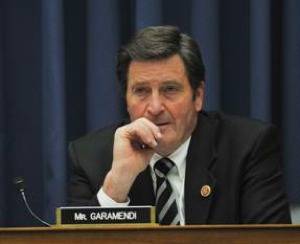Sequestration to Hit Maritime Economy, Affect Coast Guard
Coast Guard & Maritime Transportation ranking member Garamendi warns resources will be severely slashed, significantly hampering maritime commerce.
During the House Coast Guard and Maritime Transportation Subcommittee hearing yesterday, Ranking Member Congressman John Garamendi (D-Fairfield) exposed that cutbacks to basic maritime services caused by the sequester will significantly hit our economy. Under questioning from Congressman Garamendi, U.S. Coast Guard Deputy Commandant for Operations, Vice Admiral Peter Neffenger revealed that the loss of operating hours for the Coast Guard’s fleets of cutter and aircraft will be likely 25 percent and have a ripple effect on operations.
“Because the Coast Guard plays an indispensible, multifaceted role in facilitating reliable and safe maritime commerce, these across-the-board mindless cuts will result in lost profits and lost jobs at our ports, our farms, and our small businesses,” said Congressman Garamendi. “The sequester will go far beyond cutting any wasteful ‘fat,’ at the Coast Guard, this meat-ax will tear away at the Coast Guard’s muscle and bone – its ability to protect America’s security interests and promote American businesses.”
According to information provided by the Coast Guard sequestration will cut the Coast Guard’s Fiscal Year 2013 funding by approximately $340 million below the Fiscal Year 2012 funding level. This would represent roughly a 5 percent cut from the Coast Guard’s discretionary operating budget below the Fiscal Year 2012 appropriation. More important, this cut will equate to a reduction of cutter and aircraft operating hours of almost 25 percent for all missions except training and readiness for search and rescue.
For example, cuts in the discretionary budget and drop in operating hours could force the Coast Guard to:
· Furlough civilian employees and contractors which could mean fewer marine safety inspections for vessels that call at the Ports of Oakland or Stockton, or delay the issuance or renewal or mariner licenses or security credentials for seafarers and dock workers at California ports;
· Leave fewer Coast Guard vessels and aircraft available to conduct patrols to prevent narcotic smuggling or human trafficking;
· Reduce or defer the routine maintenance, repair and replacement of the more than 530 aids to navigation in California;
· Reduce the Coast Guard’s ability to safely monitor offshore exploratory drilling in the Arctic, patrol remote Pacific Marine National Monuments, and prevent illegal fishing in the U.S. Exclusive Economic Zone and on the High Seas
During yesterday’s hearing, Vice Admiral Peter Neffenger insisted the Coast Guard will prioritize resources to ensure the readiness of front line operations, such as search and rescue operations or emergency oil spill response capabilities; however, Neffenger admitted that some Coast Guard activities inevitably will suffer.














